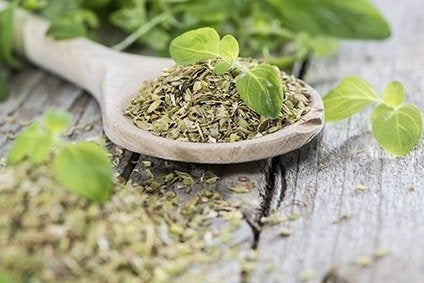
A new investigation into food fraud in the UK has claimed 25% of dry oregano on sale in the market contain ingredients other than herb.
According to details published by consumer group Which?, of 78 samples tested one-quarter were found to contain oregano mixed with other dried leaves, such as olive and myrtle leaves. These unlabelled filler ingredients constituted between 30% and 70% of the product.

Discover B2B Marketing That Performs
Combine business intelligence and editorial excellence to reach engaged professionals across 36 leading media platforms.
The investigation was led by Professor Chris Elliott, director of the Institute for Global Food Security and the author of the UK government's review into the horsemeat scandal. Prof. Elliott said his findings identified a "major problem" that "may well reflect issues with other herbs and spices that enter the British Isles through complex supply chains".
He continued: "Much better controls are needed to protect the consumer from purchasing heavily contaminated products."
Which? called on regulators and the industry to take action in order to stamp out food fraud. Executive director Richard Lloyd, stressed: "It's impossible for any shopper to tell, without the help of scientists, what herbs they're actually buying. Retailers, producers and enforcement officers must step up checks to stamp out food fraud."
Which? said it is sharing the results from this study with the Food Standards Agency.

US Tariffs are shifting - will you react or anticipate?
Don’t let policy changes catch you off guard. Stay proactive with real-time data and expert analysis.
By GlobalDataA spokesperson for supply chain specialist Trace One warned the results – following revelations over horsemeat and nut contamination in spices – could significantly undermine consumer trust in the industry.
Shaun Bossons, EVP for global business development at Trace One, said the key to maintaining trust is transparency. "To keep their customers’ trust, retailers must be able to prove that they are whiter than white. This means having total transparency over the supply chains of their products, and being able to demonstrate the provenance of each one as required.
"In situations where contamination or fraud occurs, even when completely out of the retailer’s control, they must be able to act swiftly, decisively and transparently: removing affected products from the shelves, issuing recalls, and sharing their actions and knowledge at every step. This demands complete collaboration up and down the supply chain, but retaining consumer trust in the wake of food scares makes it a small price to pay."





